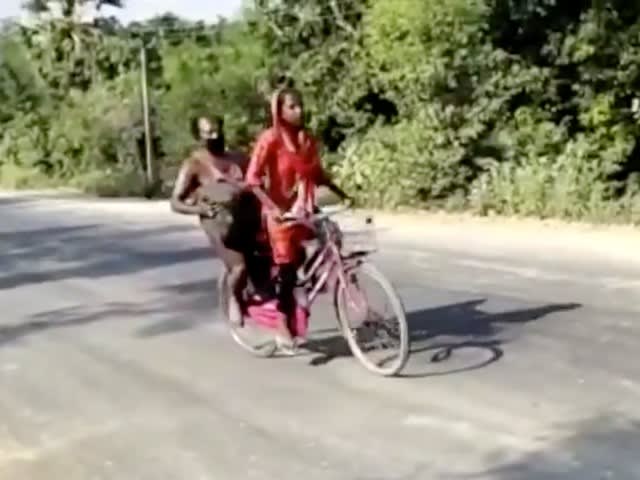
インドの15歳の少女が足の不自由な父を自転車に乗せて1200キロ離れた故郷に帰ったというニュースが感動を呼んでいる。
今日のGetUpEnglishはこのニュースを読んでみよう。
From her village in eastern India, 15-year-old Jyoti Kumari reflected on her desperate 1,200-kilometer (945-mile) bicycle journey home with her disabled father that has drawn international praise.
お父さんは足が不自由だが、auto rickshaw(三輪タクシー)を運転して生活を立てていたが、lockdownにより道が封鎖され、それができなくなってしまったようだ。
Her father, whose injury in an accident left him unable to walk, had earned a living by driving an auto rickshaw. But with all nonessential travel banned, he found himself among millions of newly unemployed. Their landlord demanded rent they couldn't pay and threatened to evict them, Kumari said.
家賃が払えず、ニューデリーの家から立ち退きを迫られたJoyotiはお父さんを自転車に乗せて故郷に戻る決心する。
So she decided to buy a bicycle and, like thousands of other Indian migrant workers have done since March, make her way home.
だが、それは簡単なことではなかった。以下、訳もつける。
As the temperature climbed, Kumari pedaled for 10 days, with her father riding on the back of the hot-pink bike. They survived on food and water given by strangers, and only once did Kumari give her legs a break with a short lift on a truck.
「温度が上がるなか、ジョティ・クマリは父をうしろに乗せてピンクの自転車を10日間こぎつづけた。誰かに食べ物と水をもらって耐え忍び、一度トラックに乗せてもらって足を休ませた以外はずっとこぎつづけた」
and only once did Kumari give her legs a break with a short lift on a truckの部分、「たった一度」を強調するためにonly onceを前に出すことで、強調の動詞didが使われ、主語との倒置が起こっている。
ふたりは故郷Darbhangaにたどり着くことができた。
The daughter and father arrived in Darbhanga, their village in Bihar state, more than a week ago, reuniting with Kumari's mother and brother-in-law, who'd left the capital region after the lockdown was imposed on March 25. Kumari, an eighth-grade student who moved from the village to Gurugram in January to take care of her dad, stayed on.























